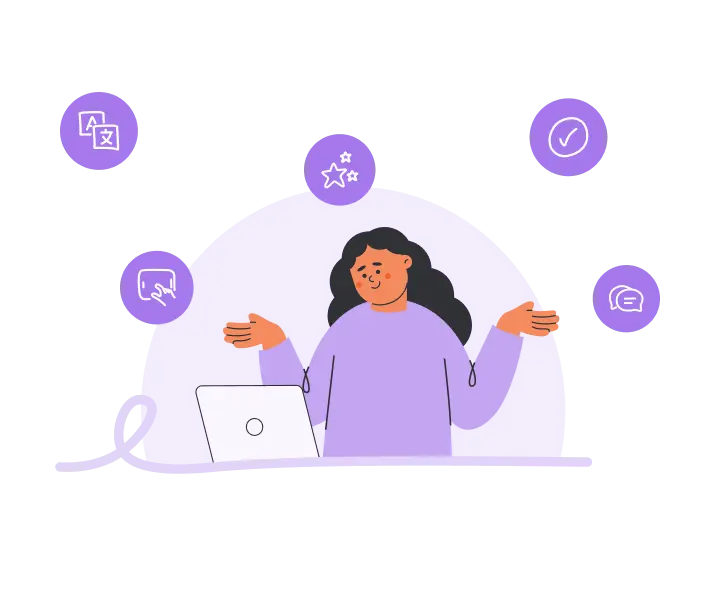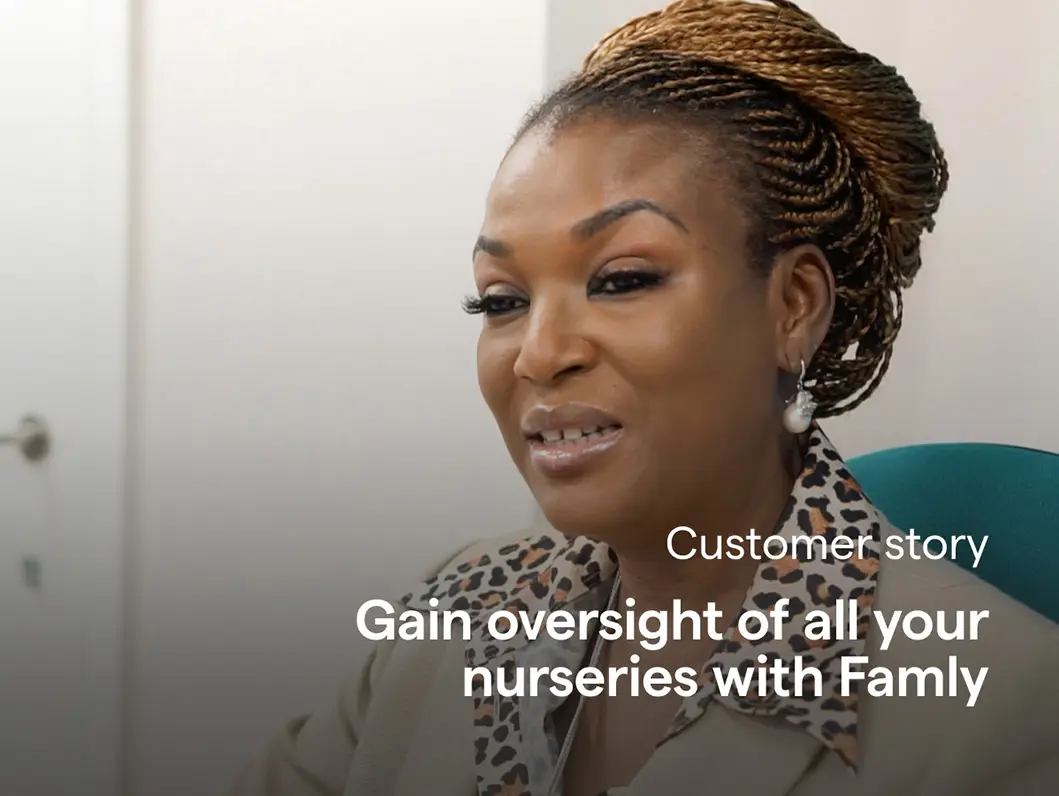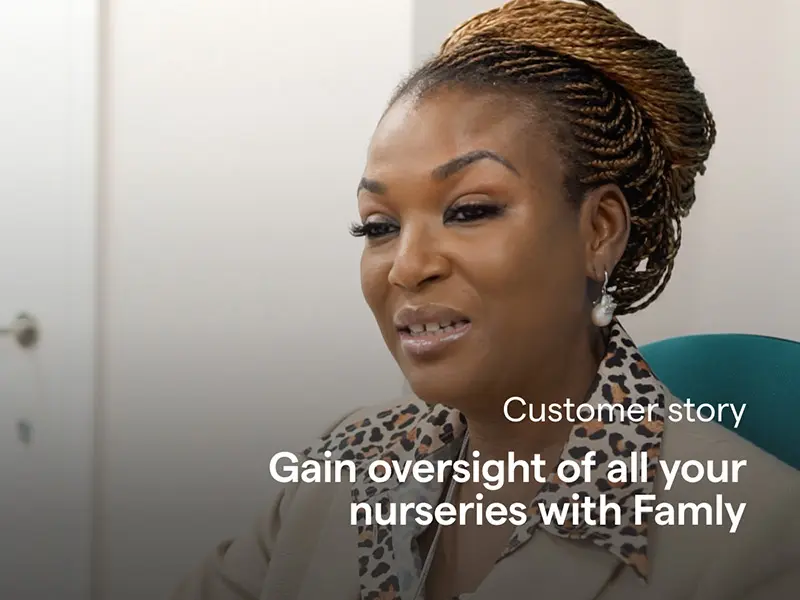settings
children
With Famly since
I am an award-winning trainer and consultant working with nurseries across the country. I provide inset training days, keynote talks, seminars at sector events such as Nursery World, Nursery Management Today and Childcare and Education Expo as well as webinars and podcasts.
I am passionate about ensuring SEND provision is of high quality and always neuroinclusive. That our neurodivergent children are in environments where they are understood, accepted and where they can thrive. Where neurodivergent staff members feel safe to be their true self and are able to grow within the profession.
I am also a mum to two neurodivergent boys and as well as my professional hat, I am a trainer with many lived experiences and stories that I share. Ensuring that other parents feel heard and understood and are able to advocate for their children.
I am fortunate enough to be supporting great SENCO’s and managers through this L4 specialist qualification, but I first started delivering this qualification a couple of years ago after being contacted by Lisa at Premier Early Years Training. Premier Early Years Training is a CACHE-accredited training company seeking a specialist to deliver the qualification to their learners, and I obviously jumped at the chance, given my day job!
What does an early years SENDCo qualification look like?
This qualification, the NCFE CACHE Level 4 award in Special Educational Needs and Disability: Leadership and Management in the Early Years, is designed for learners currently in the SENCo role, supporting and leading best practice within their settings. It has 3 units that learners will work through at their own pace. I know how busy the early years environment is and how things can always crop up, but with this, the learner will always lead the pace.
It is a qualification full of reflection, that I deliver primarily on a 1-1 basis, via Zoom, and one that is full of discussion, evaluation of current practices, provision, support and partnerships with others. This qualification is also great for continual professional development, especially for those who have already completed a Level 3 programme. It is a great platform for those wanting to further their studies and begin a level 5 leadership and management programme.
NCFE CACHE are clear on its purpose for learners to gain knowledge, understanding and skills in relation to:
- Leadership and management within early years SENCO and SEND-related roles
- Leading effective practice in a SENCO role
- Evaluating effective provision for effective practice
- Leading change to improve SEND provision
- Undertaking a practitioner-led enquiry
How does completing the SENDCo qualification improve practice and outcomes?
The first session I deliver always covers current legislation, local policy and the role of the SENCo, including how to lead others. It’s a great place to start, pulling together what we are required to do within the SEND space, whilst matching this through analysis to our actual role, which we know, is far greater!
It then moves into the coaching and mentoring element of the SENDCo role - what do these terms mean and how do we coach and mentor our team to ensure a consistent approach to SEND? This must be consistent, in line with policy and best practice markers, and up-to-date guidelines and approaches.

Reflection and consideration
Alongside all criteria within the qualification, learners are asked to reflect, consider and make notes and plans for improvement. As a sector, the early years is never stagnant and always evolving (one of the reasons why I love it). Practices and provision for SEND are no different.
The more advanced the science, the more we are listening to adults with disabilities and neurodivergent conditions, the more we understand. We are then able to offer improved provision, levels of access, and acceptance of difference.
At the end of unit 1 of the SENDCo qualification, learners are asked to carry out a staff audit and reflect on the training they and their team have had, including any knowledge and skills gaps relating to SEND.
With my work in mind, we always embark on a discussion on whether any team training so far has been neuroaffirming or coming from an ableist perspective. My training sessions are always focused on the neuroaffirming perspective and embed the work and messaging from those with a neurodivergent identity. This is a chance for learners to dive deep and reflect on the impact of previous training.
“It really made me have a better understanding of our policies and procedures also opened my eyes to how much more support is needed for parents and made me reflect as a practitioner on what I can do in my setting to help and support families”
Anna SEN L4 learner.
The big ideas

Creating an enabling environment
For all children to thrive in our spaces, they need to feel trusted and emotionally secure. They must know that their voice is heard, their views are accepted, and their responses to the environment and stimulus are understood. Children must feel secure that their behaviours are supported and know that their well-being is the priority of the adults around them.
Unit 2 looks more into strategy, understanding the unique needs of our children with SEND, the impact of Adverse Childhood Experiences, and the environment. This has always been the most impactful element of the qualification for me, as this is where I identify the need for greater awareness, support, and understanding of the factors impacting our neurodivergent children specifically.
Only when we get to know the children as individuals can we offer this deeper level of connectedness and elements of unit 2 really explore this. I ask learners to reflect on their current spaces and the challenges they face in providing an inclusive environment, as well as to consider the influence of the environment on children with specific needs.
This reflection provides a foundation of knowledge that prompts change. More often than not, a change that has a profound and positive impact on the children in their care.

Final practitioner-led enquiry
This is the final unit and a real opportunity to make a change. Learners are asked to consider an element of their provision that they feel would benefit from a research-led enquiry. Some of my learners in the past have chosen to focus on training plans, the outdoor environment, the impact of music for children with SEND, and parent partnerships.
The unit asks learners to develop a methodology, engage in wider reading and research on their chosen area, gather evidence and collate findings. All before presenting their enquiry to their team and developing a strategy for implementing the changes collaboratively.
Conclusion
If you wish to work towards a CPD-based qualification that supports personal growth and career development in the specialist area of SEND in the early years, then I can not recommend this course enough.
There are lots of training courses out there that educators can complete online, quickly, and maybe tick a box or two. But here is a course that is reflective, actionable, and embeds quality SEND provision throughout.
Premier Early Years Training
“Feedback from our external quality assurance process, is that we are one of the main NCFE CACHE centres that delivers this level 4 qualification. Feedback from learners and the managers is that it reinforces the lead SENCO's role and for the more experienced level 3 practitioners really helps them understand quality SEN practices”
Lisa Tray, Director.
For specific questions relating to the course/costs etc then contact Lisa
www.premierearlyyearstraining.co.uk
Lisa@premierearlyyearstraining.co.uk
For more information on delivery, to discuss whole staff training days or a consultation then contact Cheryl
Instagram : @aperion_training
Top tips from Alphabet House
Get top tips from a setting just like yours. Hear from Alphabet House on why and how they use Famly - and why they’ve never looked back.
Read their story







-01.svg)


